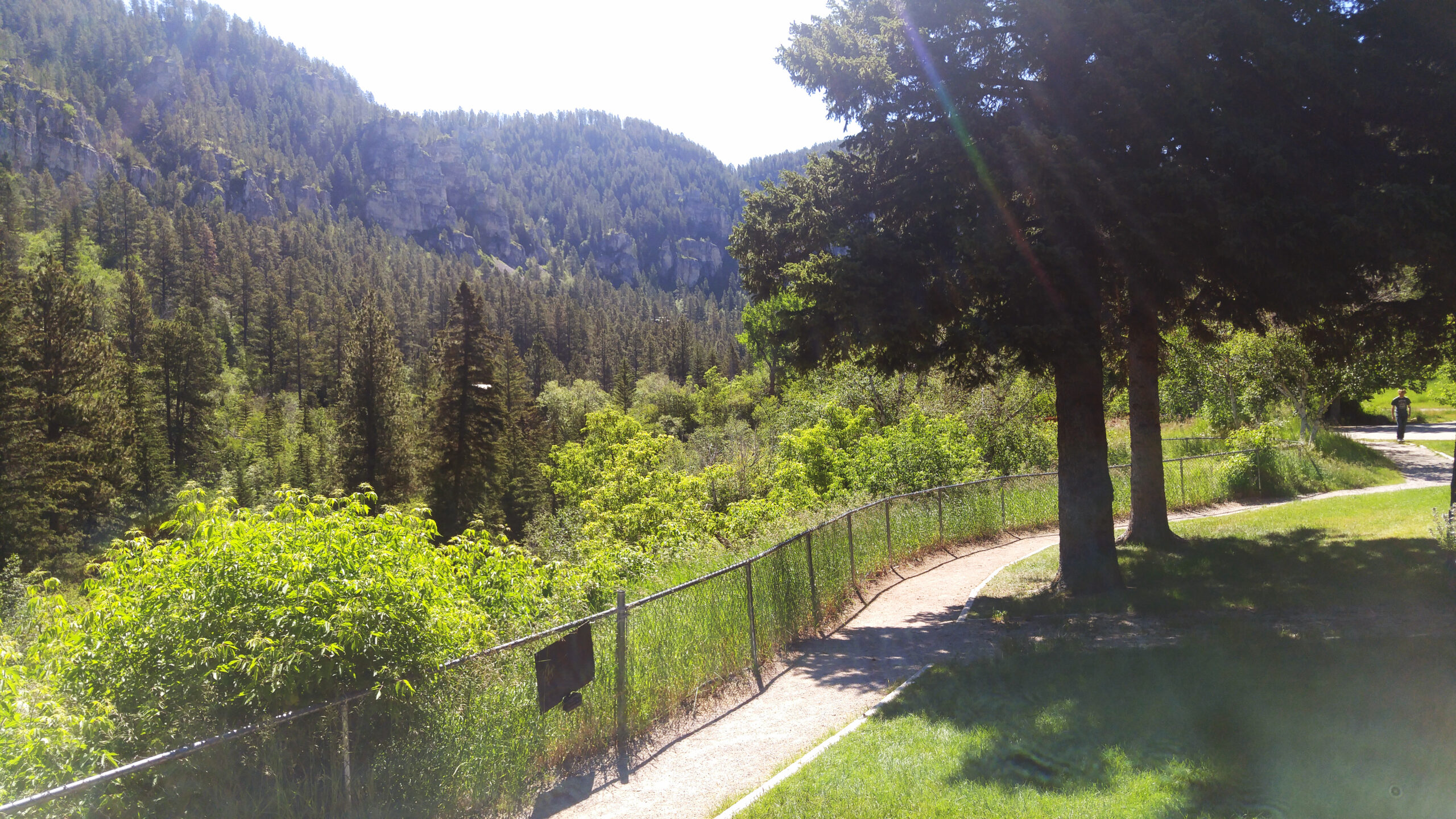Lawmakers reject studying Black Hills growth

Overlooking the canyon from the Latchstring Restaurant in Spearfish Canyon. Photo by Marnie Cook
Part 2 of 2
PIERRE – The Black Hills region of South Dakota has experienced a significant increase in new residents and visitors, leading to a debate in the state legislature on how to manage the rapid growth while preserving the area’s unique character and natural beauty.
District 31 Republican Representative Scott Odenbach introduced a resolution, HCR 6010, to establish an interim legislative committee to evaluate existing laws and development in the Black Hills and recommend appropriate regulatory provisions for the region’s long-term future.
Proponents argued that the rapid influx of new residents, vacation homes, and economic development projects threaten the solitude, environmental health, and historic character of the Black Hills. They believe an interim study would give citizens a voice in shaping the area’s growth for the next century.
However, opponents argued that the resolution undermines local control and the ability of county and municipal governments to manage growth through existing comprehensive planning processes. They warn that it could lead to new restrictions on economic activity and drive-up property taxes. Additionally, opponents expressed concerns that “outsiders” from across the state would be making decisions, which could negatively impact local businesses and housing availability.
Justin Smith, an attorney from Sioux Falls and registered lobbyist for the Tourism Coalition of South Dakota said there was no way to know who would be on the committee, “no evidence of a real need for any committee or quote regulatory provisions to protect the environmental health and historical character of the Black Hills.”
District 32 Republican Senator Helene Duhamel from Rapid City said she wouldn’t consider trying to micromanage Sioux Falls or any community that lives along the Missouri River, because she doesn’t consider East River or Missouri River issues to be of concern for West River residents. “It’s not my issue, if we’re really talking about local control, we cannot discount the opposition from almost all the local governments who are weighing in telling us they don’t appreciate it. They feel like it’s an insult and a slap in the face. Locally, we care about our quality of life, protecting our home and what makes it special, our culture, our historical and recreational issues. Also, a way for us to make a living, to afford housing and recreational issues that our children and grandchildren can stay. We know better than anyone else about the delicate balance, and I think we got this.”
The City of Deadwood had sent a letter in support of a study of growth as the city has spent a lot of time and resources to preserve the rich and unique history of the city of Deadwood since it gained historic landmark status in 1961.
Odenbach pushed back on all the opposition reminding committee members that it did pass the House 60 to 9. “So, one could glean, maybe there’s some consensus there, as far as the House on the issues of local control, which you heard so much about.” He said he supports local control, but he said nobody legislates in a vacuum whether in Pierre or on a county commission. “A few examples include the division with the state of mining severance tax, the division with the state of Deadwood gaming revenue, state law and property tax levy limits, which we’ve all heard so much about this session, environmental protections, state workforce housing bills, where we tried to artificially prime the pump of growth.”
Problems still prevail around available and affordable housing. “You heard so much about housing,” said Odenbach, “you might be interested to know there’s still $80 million of the $200 million sitting around unspent because they really can’t figure out where to spend it or how to spend it.”
Odenbach was referencing the $200 million Housing Infrastructure Financing Program created by the Legislature two years ago with state and federal pandemic relief funds. Half of the fund was made available as grants to support infrastructure for housing projects, and all of that money has been awarded, according to reporting from South Dakota Searchlight. The other half was made available as loans, but demand has been low, leaving more than $80 million in the loan funds.
It is likely that the money in that fund will not go to housing projects. Duhamel this session proposed an amendment to take $15 million dollars from the housing infrastructure program to put into a fund to support growth at Ellsworth Air Force Base. She said this will help to make sure that the base never lands on a closure list.
Duhamel’s bill did pass after it was amended to authorize the South Dakota Housing Development Authority to provide $15 million dollar loan with money from the housing fund to build or expand a school building on or near the EAFB.
Odenbach said that every session the state is asked to be involved in decisions directly affecting the Black Hills and those decisions are made by legislators voting from all across the state, not just from people who live in the Black Hills.
Odenbach addressed opponents accusations that stakeholders were never consulted. “I speak to stakeholders every day.” He said they’re concerned about the growth which he said is driving their property taxes through the roof. “And I want us to start asking ‘why?’ Why not take a pause and look at the bigger picture and preserve and protect this unique place for future generations before it becomes California and Jackson Hole.”
After a do-pass effort, Duhamel moved to send HCR 6010 to the 41st day, which was seconded by Republican Senator Sydney Davis from District 17 representing East River counties Clay and Union, essentially killing the bill.
(Contact Marnie Cook at cookm8715@gmail.com)
The post Lawmakers reject studying Black Hills growth first appeared on Native Sun News Today.
Tags: More News
